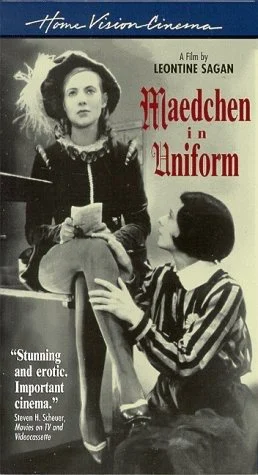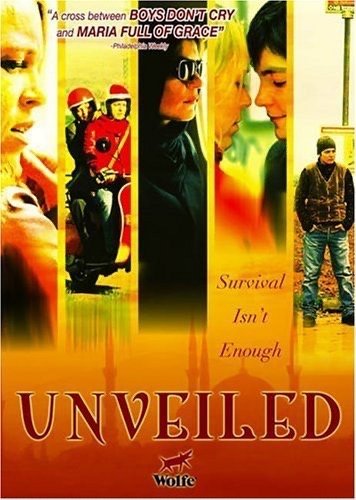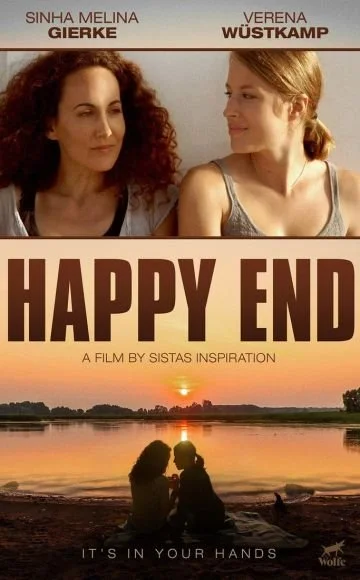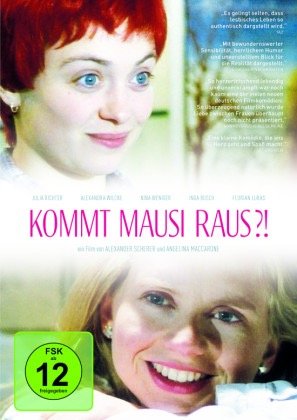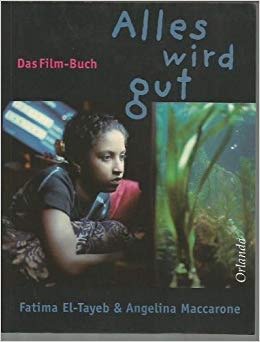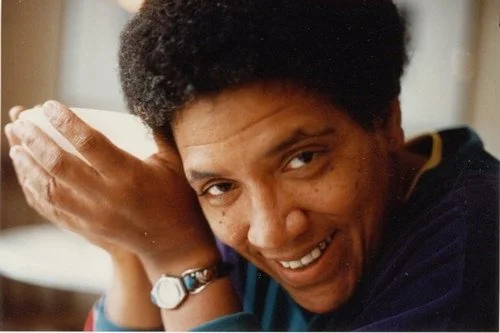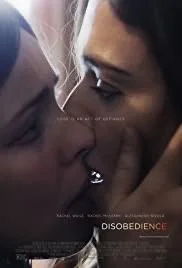- Activism
- Animation
- Asylum
- Austria
- Berlin
- Black Germans
- Childhood
- Cologne
- Colonialism
- Comedy
- DDR
- Documentary
- East/West Germany
- Environment
- Food
- Hamburg
- Health
- Holocaust
- Immigration
- Intergenerational Families
- Jewish
- Judicial system
- Lesbian/Gay
- Lübeck
- Munich
- National Socialism
- Politics
- Pomerania
- Racism
- Religion
- Sexism
- Short films
- Stuttgart
- Switzerland
- Twins
- Weimar Republic
Uferfrauen
Uferfrauen portraits six Lesbian protagonists from rural and metropolitan parts of the formerly socialist Republic and has them tell their captivating and sometimes outrageous life stories.
Mädchen in Uniform
Mädchen in Uniform (Girls in Uniform) is a 1931 German feature-length film based on the play Gestern und heute (Then and Now, lit. Yesterday and Today) by Christa Winsloe and directed by Leontine Sagan with artistic direction from Carl Froelich, who also funded the film. Winsloe also wrote the screenplay and was on the set during filming. The film remains an international cult classic.
Mädchen in Uniform
Mädchen in Uniform (Girls in Uniform) is a 1931 German feature-length film based on the play Gestern und heute (Then and Now, lit. Yesterday and Today) by Christa Winsloe and directed by Leontine Sagan with artistic direction from Carl Froelich, who also funded the film. Winsloe also wrote the screenplay and was on the set during filming. The film remains an international cult classic.
Unveiled
Fariba, prosecuted in Iran because of her love for a women, flees to Germany. But, her application for asylum is turned down. Her desperate prospects are improved by the suicide of her fellow-inmate Siamak: she assumes his identity and using his temporary permit of sojourn, is send to a province village. At first glance her survival seems to be assured, but in the refugee home she is obliged to uphold her male disguise in cramped quarters and a single mistake could blow up her cover.
Happy End?!
Lucca is in the middle of her A-level exams, heading for a career as a high-flying lawyer when she is mistakenly accused of criminal damage and sentenced to community service in a hospice. There she meets Valerie who is determined to carry out the last wishes of her friend Herma, despite Herma’s son who is only interested in his inheritance. Lucca helps Valerie to kidnap Herma’s ashes and they begin a journey which turns Lucca’s ideas and values upside down.
Kommt Mausi raus?
Young Mausi (a nickname) leaves her hometown - a very small province town in northwestern Germany - to live in the city of Hamburg. Being about 18 years old she has just finished school and seeks her freedom away from home. She knows she loves women but never dared to live accordingly. In Hamburg she soon finds a lover and a good friend, too, and the strength to face the narrow-minded people at home. After struggling with it for some time she returns for a visit to tell at least her mother and best friend.
Landrauschen
With a mixture of documentary recordings and working with amateur actors who speak in their own dialect, the authentic atmosphere of a real village is re-imagined in a fictional story and the deep identity conflicts in it are revealed.
Alles wird gut
This savvy and sexy film opens with its heroine, Nabou, a black lesbian living in Germany, being unceremoniously dumped by her lover Katja, a self-centered, blue-haired, white punker. Nabou takes a job cleaning Kim’s apartment, the straight black woman who lives in the same building just below Katja, ostensibly to stay as close as possible to her ex. Meanwhile Kim, with her own melodrama to deal with, feels overworked and underappreciated by her boyfriend, who is also her boss at the ad agency for which she works. While at first cool to and seemingly uninterested in each other, Nabou and Kim’s relationship blossoms over time, even as Katja decides she wants Nabou back and Kim’s boyfriend pops the big marriage question. With its hip soundtrack, overlapping story lines, and satirical take on racism, Everything Will Be Fine is a modern lesbian comedy sure to surprise and please.
Audre Lorde-the Berlin Years: 1984-1992
Audre Lorde – The Berlin Years 1984 to 1992 focuses on Audre Lorde’s relation to the German Black Diaspora, her literary as well as political influence, and is a unique visual document about the times the author spent in Germany. The film is also for coming generations a valuable historical document of German history, which tells about the development of an Afro-German movement and the origins of the anti-racist movement before and after the German reunification.
Disobedience
A woman returns to her Orthodox Jewish community that shunned her for her attraction to a female childhood friend. Once back, their passions reignite as they explore the boundaries of faith and sexuality. Disobedience is a 2017 romantic drama film directed by Sebastián Lelio and written by Lelio and Rebecca Lenkiewicz, based on the novel of the same name by Naomi Alderman. The film stars Rachel Weisz, Rachel McAdams, and Alessandro Nivola.
Set in North London, it tells the story of a woman who returns to the strict Orthodox Jewish community for her father's funeral after living in New York for many years, having been estranged from her father and ostracized by the community for a reason that becomes clearer as the story unfolds.



